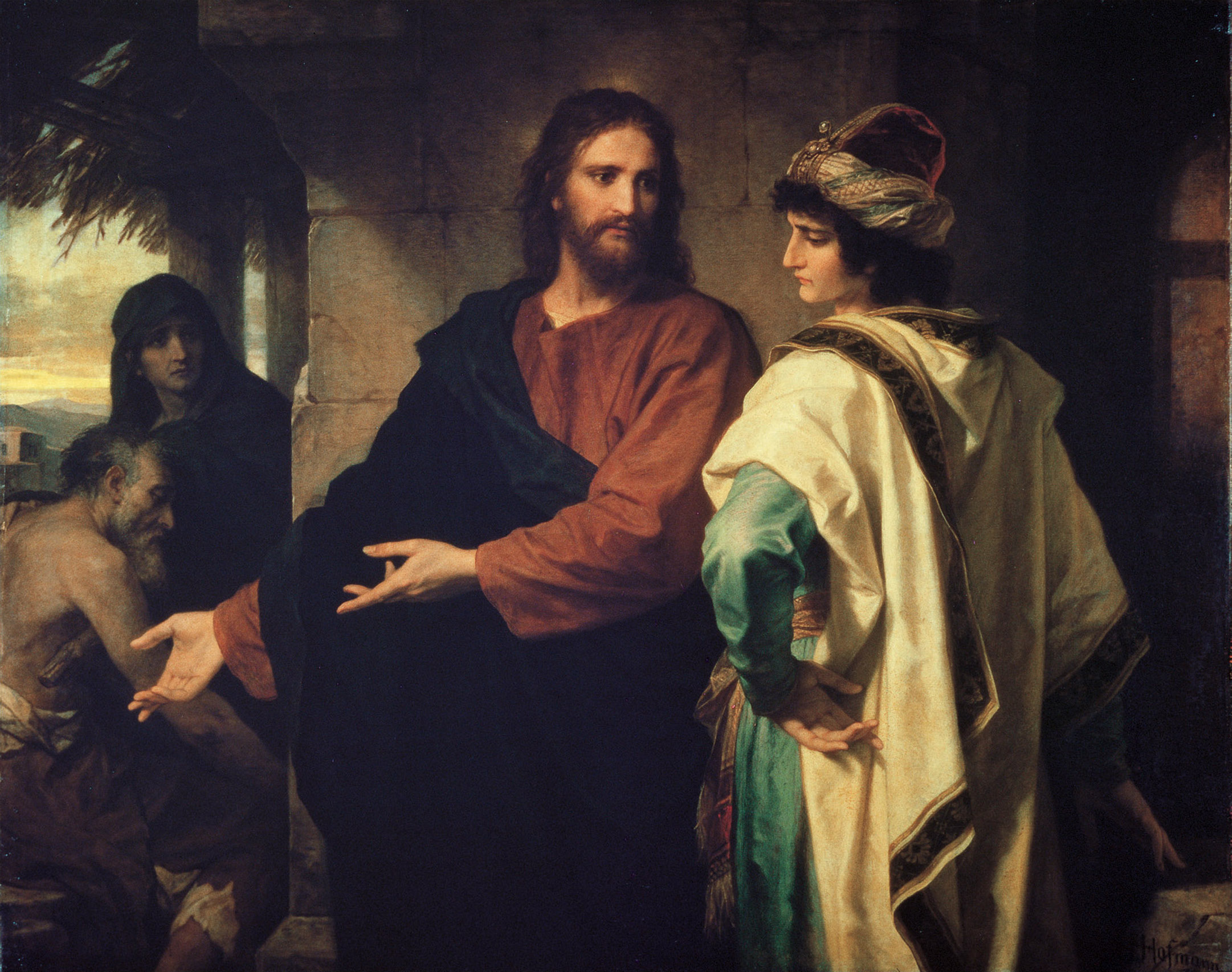The Word and Silence
Jesus’ gestures and words
The depth of Jesus’s thoughts was not complicated. Upon acquiring depth, Plato’s ideas which were as clear, became obscure. The same was for Paul, Augustine and Dante. Jesus was always crystal clear. Whoever wished to understand got his point immediately. His vision was like an eagle’s view from the utmost heights, and allowed no shadow. Being in the world as its creator, he appreciated nature, loved it as his own property, and drew from it the most enchanting and precise examples and concepts, so much so that the idea descended from heaven but seemed to germinate from the earth, like the vines, sycamores, and waters of fountain sources. The city of God, supported by the mind of the Verb – the Logos – presents a vicissitude of fishermen, waters, hills, vineyards, herds, towers and villages, since he kept his eyes well focused on the house and the work of man, and profoundly knew the sacred majesty of it all. And the language was sober. All of his discourses were very brief. He traced scenarios and concepts in a few lines, and even to heal, his gestures were equally sober and moderate. He was a Master, who taught new things. He did not repeat the lessons of others.
Igino Giordani, Jesus of Nazareth, SEI, Turin, 1950, pp.394-395.
The gaze of Jesus
He attracted people with his gaze, and his eyes manifested his divinity and humanity: a divinity which aimed to save all, and humanity which shared the pain of each person, suffered with the dissolute, and rejoiced with the happy, offering himself to all, smiling with the humble like the clear skies of Galilee, or exploding in anger like the sudden storms of Judea. His eyes spoke, probed into the depths of souls, and issued sympathy or ire: most often sweetness and mercy. He bent down with empathy, searched one’s soul, and accompanied his words with eloquent glances, as when he changed Simon of Jonas’ name. And in the heart of Peter he sowed torment or remorse, just by staring at him on the night of the betrayal. As to the rich young man «Jesus, gazed on him gently, with love».
Igino Giordani, Jesus of Nazareth, cit., p.396.
Jesus the Master
He never appeared as the master, detached, satisfied and closed up in his own wisdom, but adhered to and shared the lives of his disciples with cordiality and intimacy. In some instances they saw him agitated, troubled, crying and suffering, like all humans. Once he had resuscitated Jairo’s daughter, he took care of feeding her. And also when silent, spoke with his eyes: his silence countered useless questions, since he also took superfluous words into account.
The master of the Word is also the master of Silence: not of cowardly silence but one which condemns more than any other curse. And if the crowds were magnetized by his gaze, taken by the fascination of his personality, or struck and amazed by his miracles, they were conquered by admiration for his exhortations. Not only his ideas struck or won over people, but the way he expressed his thoughts: it was his style.
Igino Giordani, Jesus Nazareth, cit., p.397.
How Jesus made himself one with others
We could not describe Jesus’ character in just one virtue. In whatever way we consider it, he seemed to have possessed every virtue. Moreover, love prevailed over a base of humility. He was Love. He loved not only the men, but also their partners, memories, and possessions. Originating from the Israeli race, he upheld his people, wept over the walls of Jerusalem, and performed a miracle for a person of another race and religion, in consideration of the good he did to his countrymen.
He felt and cultivated friendships as a man amid men. And among the disciples, he cherished the twelve, especially Peter, James and John, with whom he shared the most important facts of his mission. John then left us the evocative remembrance of his intimate link with the family of Lazarus in Bethany. Those preferences Jesus had denoted his humanity, did not arouse rivalry amongst them, and was a sign that he loved all and each one as each desired and wished to be loved: his love on earth is as in heaven, where every point is paradise.
Igino Giordani, Jesus of Nazareth, cit., pp.399-400.
Jesus in prayer
There was so much humanity in Jesus, who prayed! He taught his followers the highest form of prayer as children who abandon themselves to the Father. He taught us through example how to pray, so that after intense days of work, staying amid the crowds, and even when exhausted after climbing mountains or sailing a boat, the desire grew to be alone to dialogue with the Father, during serene nights filled with stars that accompanied his loving prayer and supplications for humanity whose faults he took upon himself. He was the mystic who became active for love and through his contact with the Father, was pure, and drew strength to return amid the people.
Igino Giordani, Jesus of Nazareth, cit., p.402.




